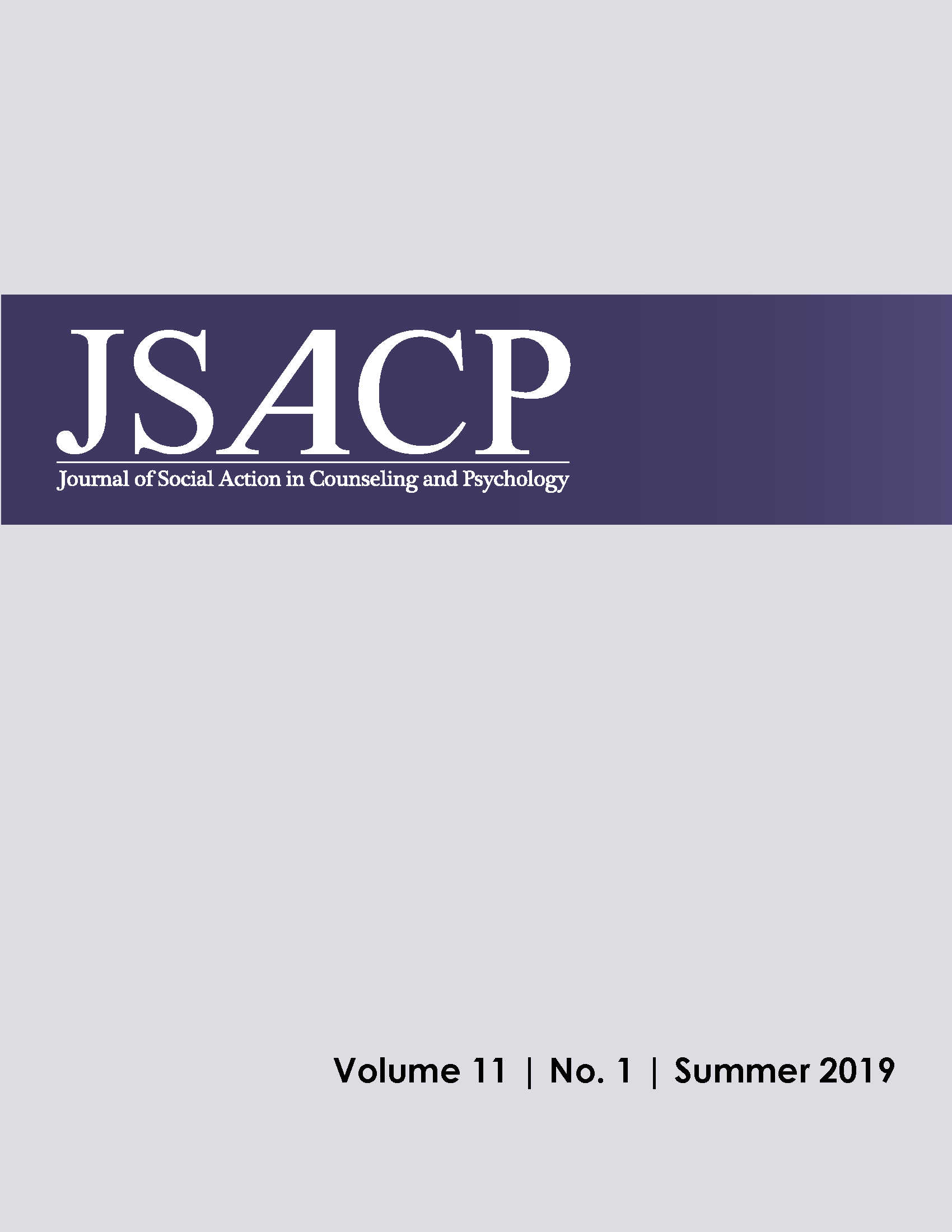Trainee Counselor Development of Social Justice Counseling Competencies
DOI:
https://doi.org/10.33043/JSACP.11.1.33-50Abstract
This grounded theory study sought to identify the process by which master’s level counselors-in-training (CITs)
develop social justice counseling competencies. Participants (N = 41) from a clinical mental health counseling
(CMHC) program were interviewed at pre-practicum, pre-internship, and post-internship phases. CITs
progressed through the stages of exposure, recognition, and action, influenced by self-reflection and attitudes.
These stages differed from the awareness, knowledge, and skills domains identified in prior multicultural and
social justice counseling literature. Most CITs planned advocacy action steps by the conclusion of their program,
though few implemented them. Implications for counselor educators are discussed.
Downloads
Downloads
Published
How to Cite
Issue
Section
License
Copyright (c) 2019 Field, Ghoston, Grimes, Sturm, Kaur, Aninditya, & Toomey

This work is licensed under a Creative Commons Attribution-NonCommercial-NoDerivatives 4.0 International License.
By submitting to JSACP, the author(s) agree to the terms of the Author Agreement. Beginning in 2018, all authors retain copyrights associated with their article contributions and agree to make such contributions available under a Creative Commons Attribution-NonCommercial-NoDerivatives 4.0 International license upon publication in JSACP. Copyrights to articles published prior to 2018 have been transferred from the authors to JSACP.









